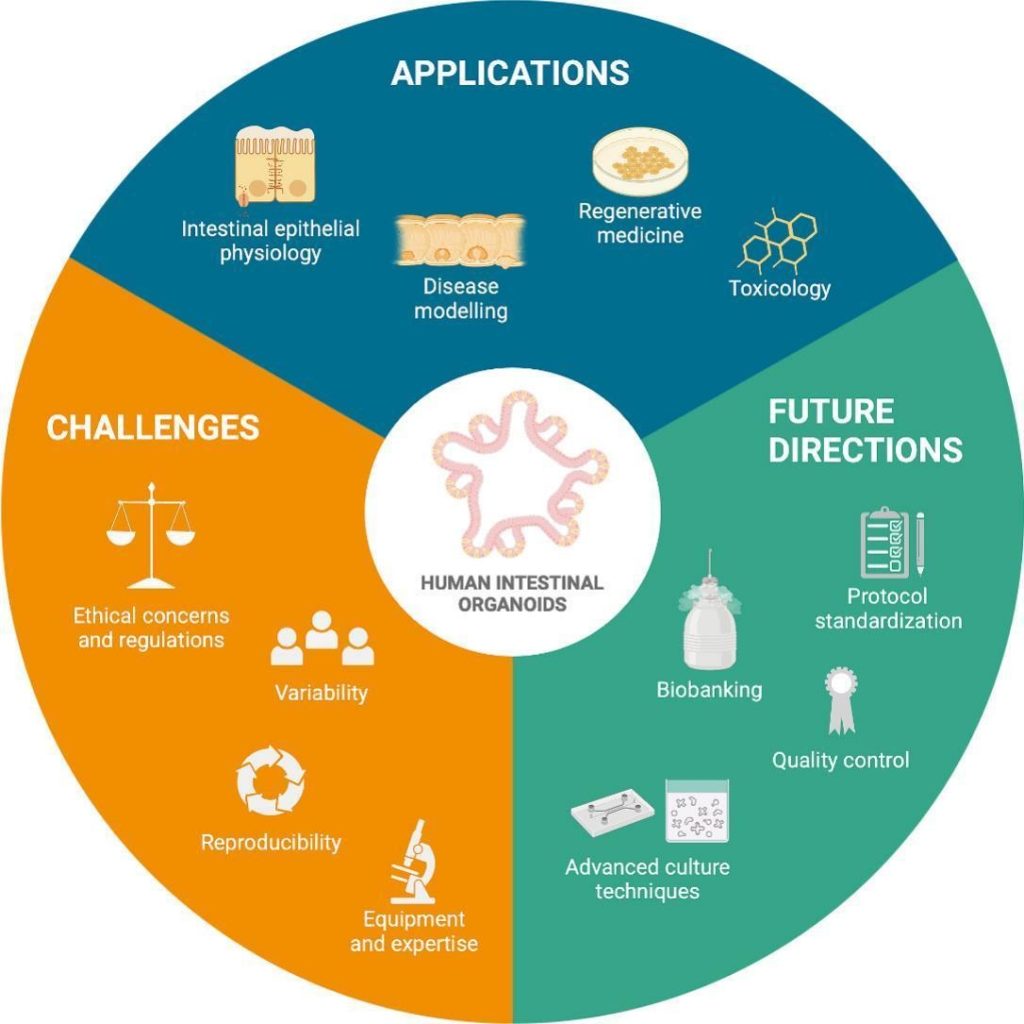Exploring the potential of human intestinal organoids: Applications, challenges, and future direction
Inês A. Parente, Linda Chiara, Simona Bertoni
Published in Life Sciences
Abstract
The complex and dynamic environment of the gastrointestinal tract shapes one of the fastest renewing tissues in the human body, the intestinal epithelium. Considering the lack of human preclinical studies, reliable models that mimic the intestinal environment are increasingly explored. Patient-derived intestinal organoids are powerful tools that recapitulate in vitro many pathophysiological features of the human intestine. In this review, the possible applications of human intestinal organoids in different research fields are highlighted. From physiologically relevant to intestinal disease modeling, regenerative medicine, and toxicology studies, the potential of intestinal organoids will be here presented and discussed. Despite the remarkable opportunities offered, limitations related to ethical concerns, tissue collection, reproducibility, and methodologies may hinder the full exploitation of this cell-based model into high throughput studies and clinical practice. Currently, distinct approaches can be used to overcome the numerous challenges found along the way and to allow the full implementation of this ground-breaking technology.
Read the full article here: https://doi.org/10.1016/j.lfs.2024.122875



